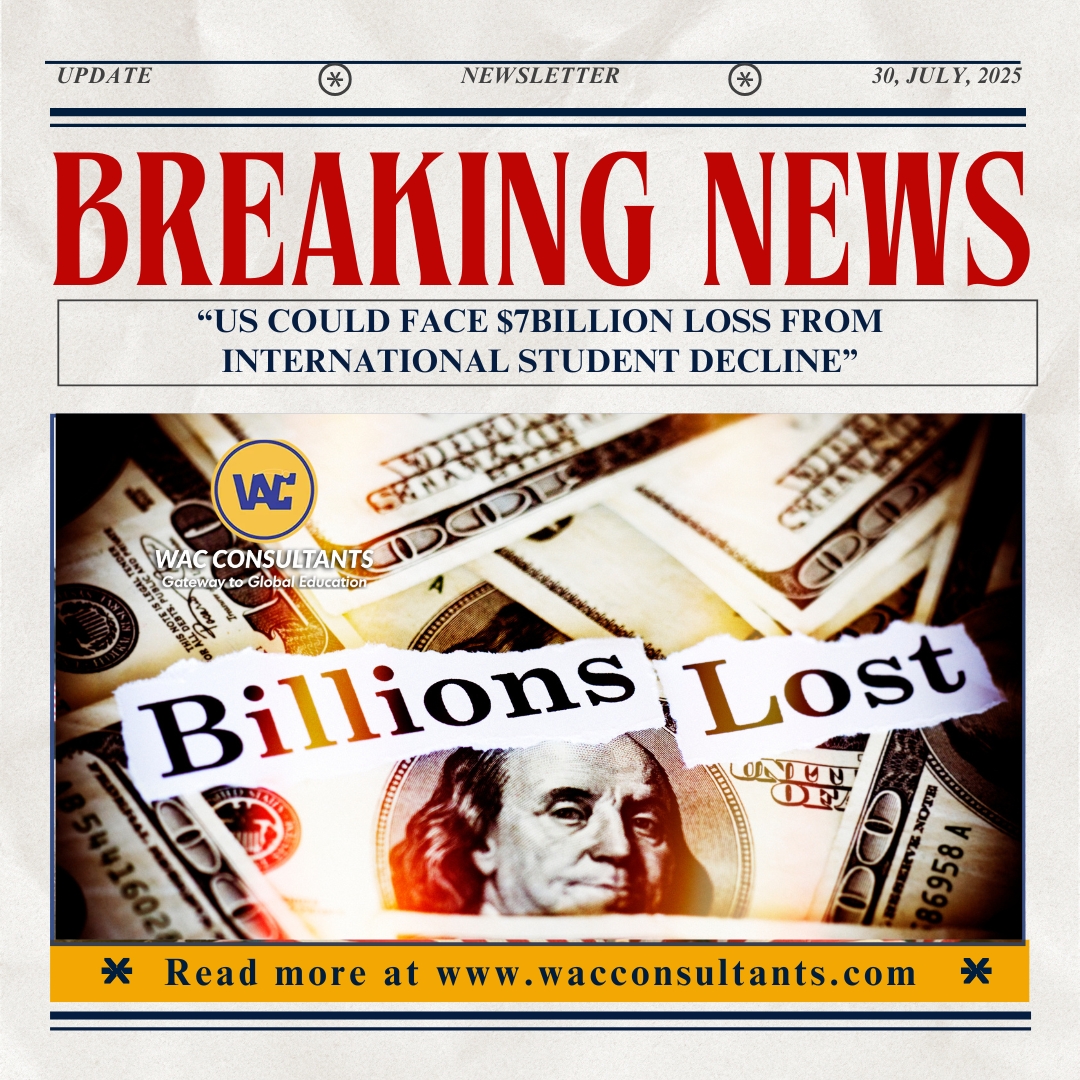“US Could Face $7Billion Loss From International Student Decline”

“US Could Face $7Billion Loss From International Student Decline”
What’s happening?
- Fewer international students are expected to study in the U.S. this fall.
- New enrolments could drop by 30–40%, and overall international student numbers could fall by 15%.
Economic impact:
- The U.S. could lose $7 billion this year in student spending.
- This loss also puts 60,000+ jobs at risk—jobs supported by international student spending in local communities.
Main reason: Visa issues
- The U.S. State Department paused visa interviews between May 27 and June 18, 2025, for new security procedures.
- This created massive backlogs and delays and many students are now unable to get appointments in time.
Visa issuance data:
- F-1 (student) visa approvals:
- Dropped by 12% from January–April 2025.
- Dropped by 22% in May 2025 compared to May 2024.
- Could drop 80–90% in June due to the interview freeze.
Wider policy effects:
- The Trump administration has placed visa restrictions on 19 countries, and may add 36 more.
- This could cost another $3 billion and 25,000 jobs annually.
What NAFSA wants:
- NAFSA (a leading education organization) is urging the U.S. government to:
- Speed up visa processing for student and exchange visitors.
- Exempt F, M, and J visa holders from travel bans.
- Prioritize student mobility as an economic and academic need.
Why this matters long-term:
- International students contribute $46 billion annually to the U.S. economy.
- They drive research, innovation, and enrich American education.
- If fewer come, American universities and the economy will suffer—both now and in the future.
Summary:
Due to visa appointment suspensions, stricter immigration rules, and travel bans, the U.S. may lose $7 billion and 60,000 jobs from a big drop in international student enrolment in 2025. Education experts are warning that urgent action is needed to avoid long-term damage to the U.S. economy and global competitiveness.

